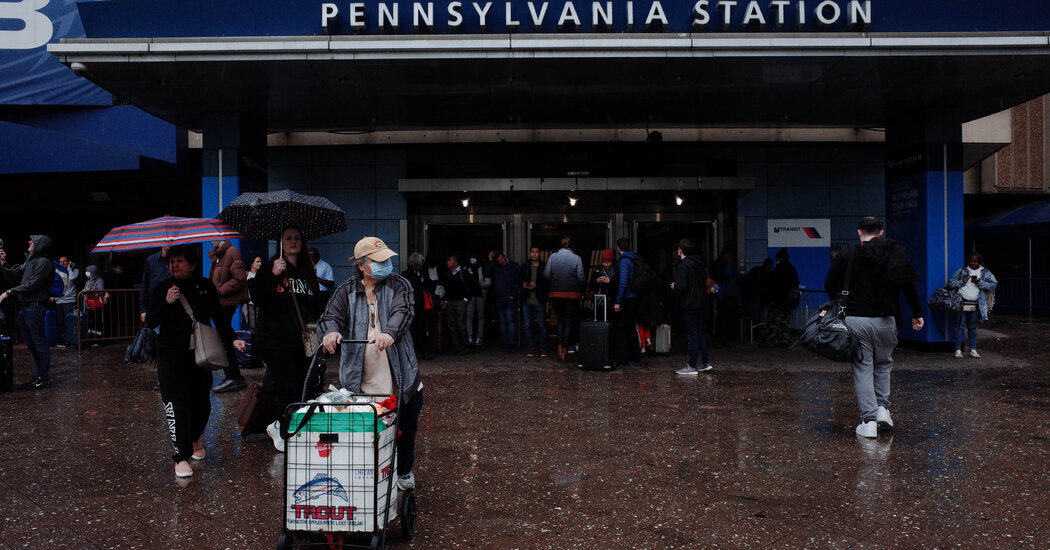In many ways, the project mirrored Mr. Cuomo’s other efforts to put his imprint on the city, including the renovation of the Moynihan Train Hall across the street from Penn Station and his reconstruction of the city’s major airports in Queens.
In this case, the funds from the development would pay for cosmetic improvements at Penn Station, as well as a potential expansion of the station a block south of its current location. New tracks and platforms would add rail capacity along the economically vital corridor connecting commuters in New Jersey to jobs in New York, after a second tunnel is built under the Hudson River.
The state would wield its authority to overrule local zoning and planning laws so that developers could build bigger buildings at the site than otherwise allowed. When Ms. Hochul succeeded Mr. Cuomo, she continued the state’s support for the project while making modest changes to appease critics, such as expanding pedestrian pathways and slightly reducing the project’s proposed scale.
The report also highlights a key concern from critics: It would largely benefit a single company, Vornado Realty Trust, one of the city’s largest office developers. Vornado owns four sites in the development zone and part of a fifth, and its chief executive, Steven Roth, last year donated the maximum, $69,700, to Ms. Hochul’s campaign.
Mr. Roth, along with his family members, also gave Mr. Cuomo about $400,000 in campaign donations before he resigned. State officials and a Vornado spokesman have said the donations did not influence Vornado’s role in the venture. Mr. Roth has called the redevelopment of the Penn Station area Vornado’s “Promised Land.”
In an earnings call this week, Mr. Roth reiterated the company’s commitment to the state’s project. “Obviously, we support it,” he said.
A Vornado spokesman declined to comment on the record on the report.
Despite the state’s multiyear work on the project and its imminent approval, the Independent Budget Office found that the plan lacked a robust analysis of the numerous risks, including the consequences of the shift to remote work and whether the new Penn Station towers could negatively impact Hudson Yards, the enormous development on the far West Side of Manhattan. Hudson Yards opened in 2019 and has a similarly structured tax deal as the proposed Penn Station site.

